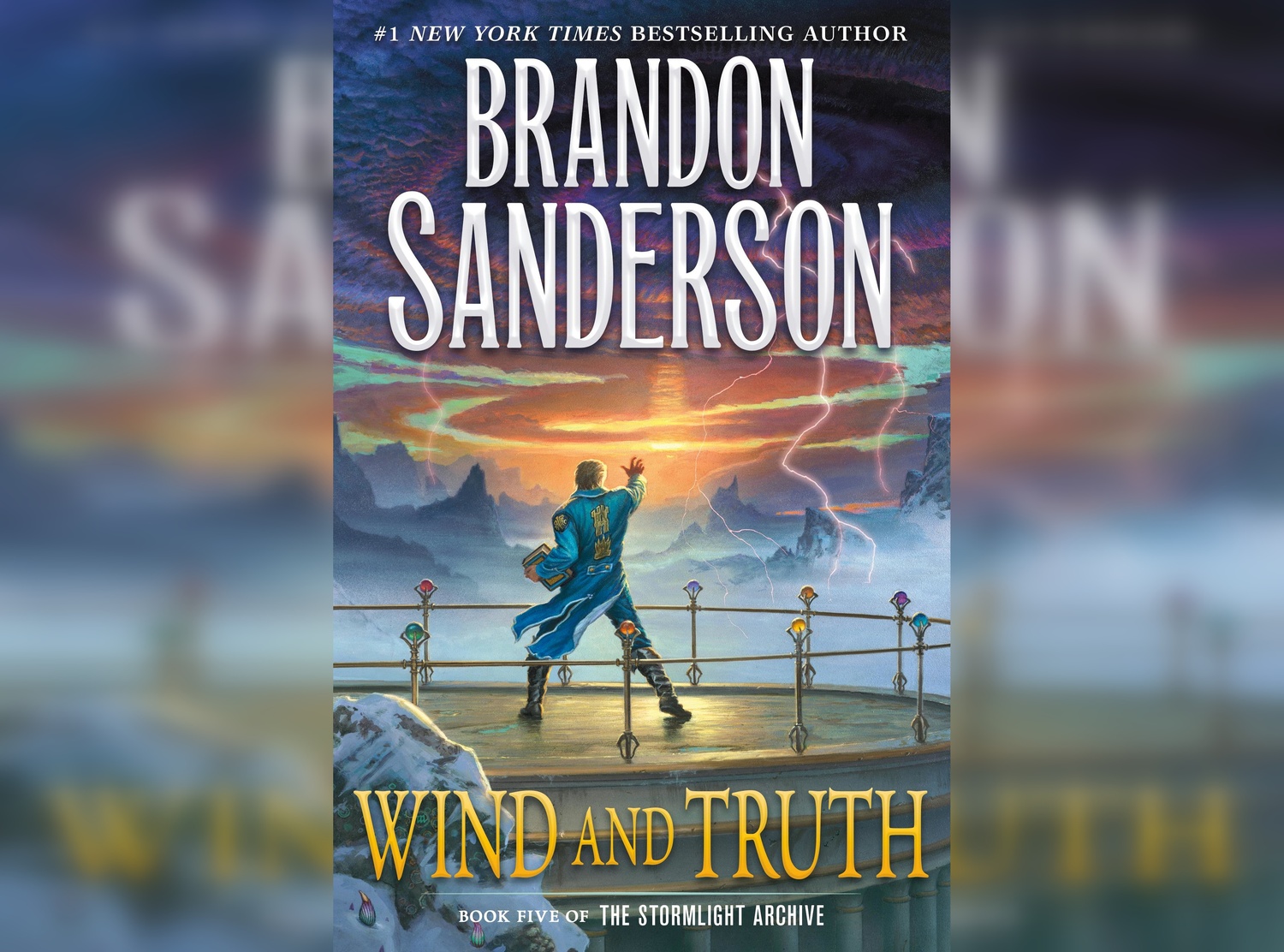
News
Nearly 200 Harvard Affiliates Rally on Widener Steps To Protest Arrest of Columbia Student

News
CPS Will Increase Staffing At Schools Receiving Kennedy-Longfellow Students

News
‘Feels Like Christmas’: Freshmen Revel in Annual Housing Day Festivities

News
Susan Wolf Delivers 2025 Mala Soloman Kamm Lecture in Ethics

News
Harvard Law School Students Pass Referendum Urging University To Divest From Israel
‘Wind and Truth’ Review: Sanderson Closes The First Arc of ‘The Stormlight Archive’ With a Bang
3.5 Stars

This review is spoiler-free.
“Wind and Truth,” the epic, 1,300-page behemoth of a novel from Brandon Sanderson, is finally here. This book marks the end of the first cycle of The Stormlight Archive, Sanderson’s grand high fantasy series that is set to include 10 total books and begin its second arc in the 2030s. The book is high-stakes, following up on the deadly contest of champions laid out in its preceding book, “Rhythm of War.”
Sanderson brings all of his hallmark strengths to this story, including well-thought-out worldbuilding, an impressively endearing set of characters, and an intriguing mystery, but the novel is also long-winded and occasionally meandering. “Wind and Truth” closes out the first arc of The Stormlight Archive series with a bang, but along the way, it occasionally loses sight of the human, character-driven spirit that made fans fall in love with “The Way of Kings” in the first place.
To put it simply, “Wind and Truth” is complicated. It balances the perspectives of up to 20 characters, delves into the lore of the series’s setting and the larger Cosmere universe, builds up to the epic contest of champions, and tries to be endearing and funny along the way. For the most part, this swirling plot comes across as epic and exciting. Sanderson knows that fantasy fans enjoy interconnected worlds and carefully crafted worldbuilding, and “Wind and Truth” seems to be cognizant of how much information it must get across to the reader while also staying intriguing.
Sanderson avoids information overload by dividing the novel into an easy-to-follow 10-day countdown format as the plot inches toward a final confrontation. On each day, more lore is brought to the surface, and each character has a mini arc. Sanderson’s veteran fantasy writer status is clear in this book, as he breaks the larger plot into digestible pieces that remain exciting while standing alone.
Still, in juggling all of the characters set up throughout The Stormlight Archive series, “Wind and Truth” loses its central voice. The other four novels published in the The Stormlight Archive series include multiple perspectives, but one character normally rises up to guide the plot of the novel — whether it be Kaladin, Shallan, Dalinar, or Navani, respectively.
“Wind and Truth,” on the other hand, dedicates equal attention to each of its roughly 10 main characters. Although this technique captures the grand story that Sanderson wishes to bring to life, it also leaves the reader feeling a bit detached from the characters’ personal stories. In the earlier “Stormlight” books, the 10 to 20 perspectives always lead back to the central character’s problem, but in “Wind and Truth,” the plot outweighs Sanderson’s skillful character work.
This problem could be solved by simply giving one voice additional chapters. Szeth, the assassin who readers first encountered in “The Way of Kings,” seems to be the easy choice as this novel’s central figure, and the book would have benefitted from more attention to him and his journey with Kaladin. Although Sanderson’s plots and worldbuilding are fascinating, at the end of the day, his books succeed due to their emotional cores and not their weaving plotlines.
Nonetheless, readers are bound to feel some emotions when “Wind and Truth” reaches its final pages, and the beloved “Sanderlanche” — a term used to describe Sanderson’s thrilling concluding acts — begins. Sanderson provides each character with a satisfying conclusion to their first character arc while also leaving enough mystery to encourage readers to pick up the sixth book when it arrives.
The novel has both a sense of finality and a feeling of hope, a combination that is only achievable due to Sanderson’s careful character development throughout the series. Adolin and Kaladin’s arcs are especially well done, as the plot and their character arcs align perfectly. As always, the best part of Sanderson’s novel is its end, due to both its exciting finale and the pressing questions that he leaves the reader to sit with until his next book is released.
Overall, “Wind and Truth” is satisfyingly epic and demonstrates Sanderson’s skill in fantasy writing. Still, it is unlikely to be anyone’s favorite installation in “The Stormlight Archive” and in some ways feels more like a stepping stone to the sixth novel instead of its own work. In a 10-book series, this is understandable, and “Wind and Truth” understands its place in Sanderson’s expansive collection of work. It opens as many doors as it closes, while still trying to give each character their time to shine. And, after all, Sanderson has been telling us that it’s “journey before destination” throughout the The Stormlight Archive series. “Wind and Truth” embraces this idea, taking readers on a sweeping journey that feels exciting until the very last page.
—Staff writer Hannah E. Gadway can be reached at hannah.gadway@thecrimson.com.
Want to keep up with breaking news? Subscribe to our email newsletter.
